Remembering Ronald Numbers (1942-2023), Historian of Science

The great historian of science Ronald L. Numbers passed away this July, at age 81. I knew he was not doing well, as he had emailed me in May to let me know he was going into hospice care. Last week, I was out in California to attend his memorial service at Loma Linda University Church, in the city of Loma Linda.
Ron was (and is) a legend in the history of science and was the world’s foremost authority on creationism and antievolution. His book The Creationists is the definitive treatment on the topic—an exhaustive and illuminating (as well as deeply sympathetic) chronicle of creationism in the United States.
Beyond his impeccable scholarship, Ron was one of the most generous and supportive people you could ever meet. Every time I meet someone in the field I ask them if they knew Ron, and the response invariably is: “Oh, yes. He really helped me out one time!” Everyone has a story like this. Me included.
I was beyond fortunate to be able to get to know him and work with him the past few years. He encouraged me to write my dissertation, he sat on my committee, and he also spurred me to research Eastern Orthodoxy and science by inviting me to join him in Greece for two conferences.
I did not even know him when I first talked to him, but because one of my teachers—the American historian Grant Wacker—had gone to school with Ron, he arranged a phone call. I talked to Ron first in 2017, and he lit the fuse for my dissertation on intelligent design. We spoke for over an hour, and the key moment was when Ron stated his conviction, which he always stood by, that intelligent design and creationism were not the same. This stance became my own operating idea, too, and it informed by dissertation and the eventual book on intelligent design I am writing (I am almost done with it).
I’m not a supporter of ID, but I am interested in it. And Ron was a shining example of how to write about controversial ideas with sensitivity and care. In The Creationists, he mused that historians can write about obscure and even ridiculous topics like early modern alchemy with empathy and deference, but that they “lose their nerve” when writing about creationism. Instead, the attitude becomes one of activism and politics: “We’ve got to stop the bastards!”
But Ron wanted to move away from that kind of writing. After all, he came from a creationist family and tradition. He wrote about how he tried to keep perspective while writing The Creationists, how his job was to illuminate rather than defeat, and how he kept perspective by hanging up a banner for a creationist lecture given by his father, Raymond W. Numbers. The goal was not to belittle or attack but to understand and to explain. It’s a tall order, not all academics are capable of such high-minded neutrality, but Ron succeeded at every level.
Seventh-day Adventism and the History of Science
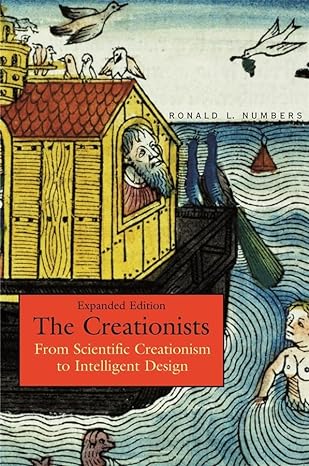
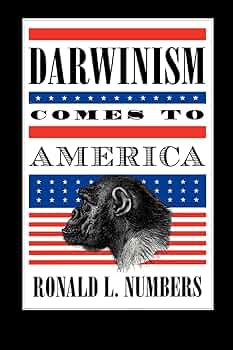
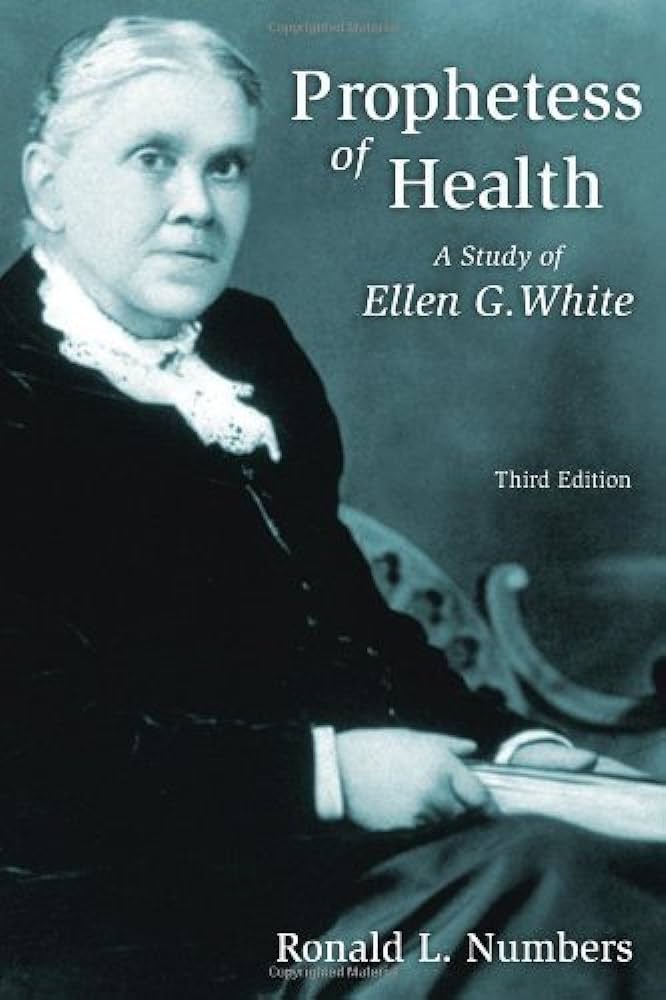
Ron grew up Seventh-day Adventist, which informed his perspective on creationism (in fact, when we first met, he remarked that he could tell I was familiar with SDA because I had pronounced the word “Adventist” correctly—apparently a kind of shibboleth, but he was right, I had gone to Seventh-day Adventist summer camp as a kid, even though my family was nondenominational evangelical). His heritage meant that he wanted to treat the Adventists with respect, not disdain. This was all the more impressive because his relationship with SDA was difficult.
His career was seriously hampered by a controversy in the 70s, when—while he was professor at the Adventist Loma Linda University—Ron wrote a critical biography of Ellen G. White, the prophetess co-founder of Adventism. Ron’s book Prophetess of Health, though fairly neutral overall, nevertheless ignited a firestorm in the SDA world, and the result was the loss of his faculty position. While his career eventually recovered and he was housed for most of his academic life at the University of Wisconsin-Madison, this was nevertheless a difficult period. Over time, Ron drifted away from believing in the church’s teachings any longer and described himself as an agnostic (though he said he was uncomfortable with the label and did not like it).
Ron’s work continued to focus on Adventism, and in the early 90s he produced his magnum opus book The Creationists, the definitive history of creationism that remains—to this day—the standard treatment. It’s hard to see how anyone would ever be able to supersede it either. All that’s left, for the rest of us, is to fill in some of the gaps.
As with his book on Ellen White, Ron focused on Adventism. It was a bit of a surprise to outsiders (even insiders, too), but Ron argued that White’s writing, and the ideas of the Adventist creationist George McCready Price, were the hidden foundation of antievolution in America. Most creationists in the USA are not Adventist, but Ron showed that many of the ideas that creationists took as self-evident truths from the Bible (the young Earth, for instance, or the importance of Noah’s Flood for the Earth’s geography) were not views held by mainstream fundamentalists, but were in fact marginal ideas from Seventh-day Adventism that migrated into creationism in the 1960s. This infusion came from John C. Whitcomb and Henry M. Morris, the creationist (and non-Adventist) authors of The Genesis Flood, who drew on Price. In point of fact, before that book, creationists often were not young-Earthers. Classic fundamentalists like William Jennings Bryan, Harry Rimmer, and Charles Hodge were old-Earth creationists, believing that the earth was millions or even billions of years old. The fundamentalist Scofield Reference Bible likewise embraced an old Earth. Indeed, even some of The Fundamentals pamphlets—the early 20th century tracts from which fundamentalists got their name—actually were pro-evolution. The man who wrote the book on biblical inerrancy, B.B. Warfield, was open to evolution happening (though he was a bit standoffish when it came to natural selection).
This surprised me, too. I grew up in a creationist setting, and the idea that a 6,000-year-old Earth, a literal interpretation of Genesis, is a fairly new thing—something that was not, actually, a self-evident reading of the text—would not have made sense to me as a kid. However, this seemingly obvious reading has a history, and a recent one, and Ron was the one that revealed it better than anyone else.
Ways of Reading Genesis
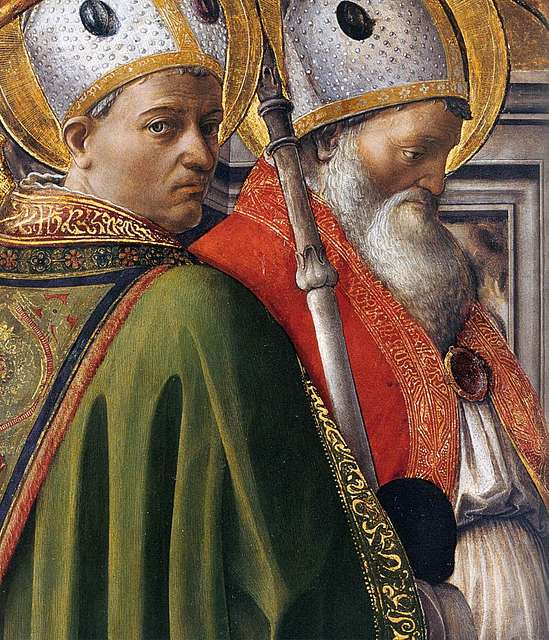
My encounter with this history did not end in agnosticism, however. The story was more liberating than constricting, as learning there were options beyond young-Earth creationism was like being unshackled from a prison.
I think often of St. Augustine’s first encounter with St. Ambrose, in Milan during the waning days of the Roman Empire, when Augustine was struggling to accept the stories of the Bible and the behavior of God in the Old Testament. First, he sees Ambrose poring over Scripture, reading the text with such intensity that he could not be interrupted. Then, when Augustine hears him speak, he finds himself transfixed and overwhelmed by the power of his rhetoric. “I realized that the Catholic faith,” Augustine wrote in The Confessions, “was in fact intellectually respectable.” One of the key shifts, for him, was in Ambrose’s non-literal reading of the text. “I heard some difficult passage of the Old Testament explained figuratively,” Augustine recounted of Ambrose, “such passages had been death to me because I was taking them literally.” No longer handcuffed by strictly literal readings, Augustine was able to overcome his doubts and convert.
This story is always interesting to me, because it shows that concern to interpret the Bible in light of scientific knowledge is not some modern retreat or embarrassment of the text. In fact, it’s almost the opposite—the ancient church was far more comfortable interpreting passages allegorically when the physical meaning did not add up (IE, the spiritual meaning of light being created before the sun, which physically—they believed—was not possible). It is young-Earth creationism, with the 6,000-year-old Earth, that is ironically more modern and rooted in Baconian inductive science from the 1600s. Playing the role of Ambrose in my life was Francis Collins, whose book The Language of God, which I read in high school, gave me the hermeneutical keys to see both Christianity and the Bible in larger ways than I had been accustomed. And I learned that many of the most important evolutionists in scientific history had been Christians—including Collins himself, but also Asa Gray, Theodosius Dobzhansky, David Lack, and Simon Conway Morris (among many others).
This was the start of my journey to Eastern Orthodoxy, as I started looking for a version of Christianity that had the intellectual resources to deal with problems in science and philosophy. And Ron played a role here, too. He knew that I was on the path to Orthodoxy, and just so happened to be involved with a new organization called Project Science and Orthodoxy Around the World (Project-SOW). Out of the blue, Ron emailed me in late 2017 and said I should submit a paper to them. I did, and then he got them to invite me to Greece to present it. The irony is that, for all his work on American Christianity (and mine, too), it was in Athens that I actually got to meet Ron in person.
In Athens (Twice)
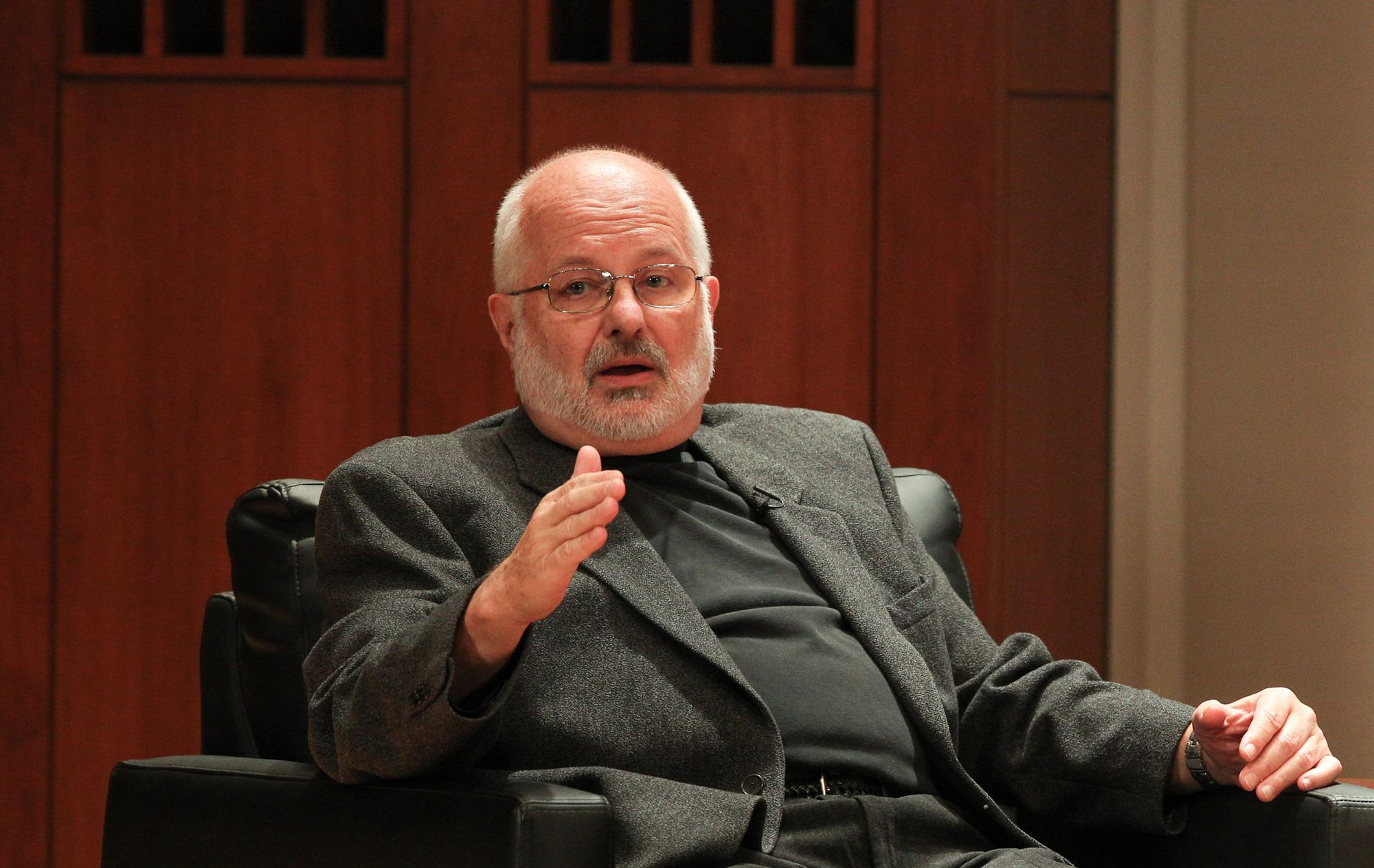
It was fun to see him in his own environment. As anyone who knew him could tell you, Ron was funny in a troublemaking, almost impish kind of way. When I had concluded our first phone call, he told me to tell Grant Wacker “that he’s a rat’s ass.” He loved to talk about sports, especially college football and baseball, and he was horrified that I was a Dodgers fan. When I pitched my dissertation argument to him, Ron approved but then said, “One thing: stop rooting for the stupid Dodgers!” It was Brewers and Badgers or bust.
When we were in Greece, I also learned that Ron suffered no fools. He was the kindest and most generous scholar I ever met—if you asked for help. But if you didn’t treat others with the same deference, then Ron would let you have it.
One of his tasks, while there, was to respond to a paper by a Romanian theologian. Ron would have done this gladly, but his interlocutor completely disregarded Ron’s time and submitted the paper to him only a couple days before the presentation, casually saying that Ron could just make some perfunctory remarks in support. Ron was naturally frustrated by this flagrant abuse of his collegiality. The theologian put him in a position where it would have been almost but impossible to write a quality response. And, even worse, the paper was not good! But whereas most scholars would have waved a white flag and mailed it in, Ron went the opposite direction. As he was about to go up on stage, Ron leaned to me and said, “I’m gonna destroy this guy.” The resulting academic defenestration left no doubt as to who had the better grip on the material.
If there was one thing Ron could not stand, it was poor history. This is partly why, despite being an agnostic, Ron was locked in a never-ending battle with the New Atheists and their ilk. Atheist firebrands like Richard Dawkins, Sam Harris, Daniel Dennett, and more, rose to prominence in the mid-aughts, and were different from their forebears in that they had no respect for religion and felt the best course of action when dealing with creationists was brutish insolence and trying to insult their opponents to death, rather than—you know—studying history. The New Atheists were fond of the Conflict Thesis, the idea that religion and science are inevitably at war with each other, and that the story of western history is the story of science’s slow liberation from dogmatic theological strictures. It’s a grand narrative, but the only problem is the one Ron repeatedly rammed home in his writing: it isn’t true.
Ron wasn’t the first person to come to that conclusion. Historians have been trying to dispel the Conflict Thesis for decades, regardless of their religious viewpoints. One of the earliest shots fired was in James R. Moore’s magnificent The Post-Darwinian Controversies from 1979, in which he conclusively argued that the “conflict” idea came mostly from two 19thcentury historians, John William Draper and especially Andrew Dickson White. Both produced shoddy, rather activist grand tales about religion’s inevitable war with science—but the irony is that both were more interested in attacking Catholicism than promoting atheism. But their epigones today don’t even notice that subtlety, and simply run with the arguments that were already unfashionable and inaccurate in the early 20th century.
Religion and Science at War?
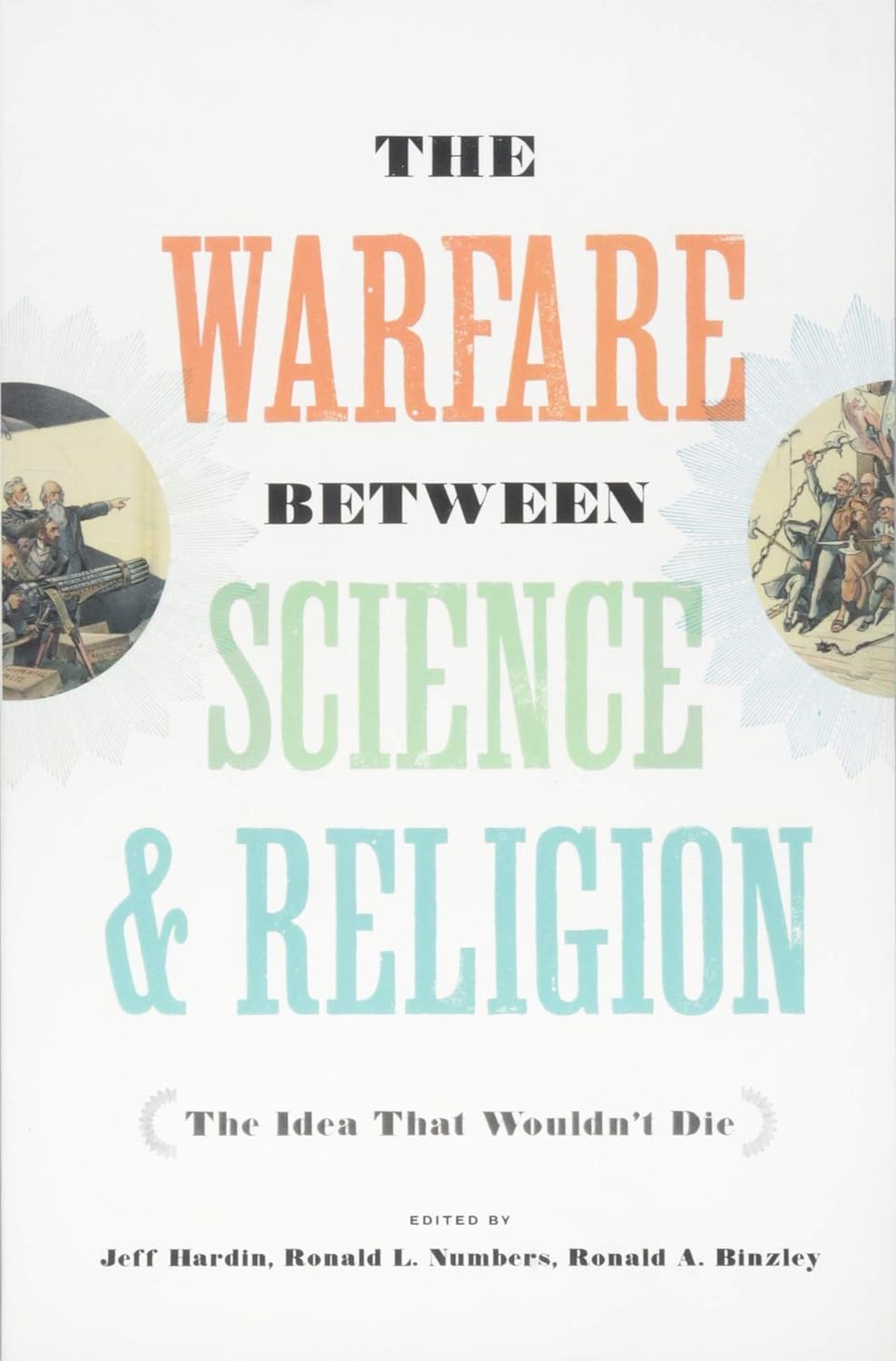
For his part, Ron edited several books on this topic, trying desperately to show that the idea was an oversimplification at best. It is not to say, of course, that there is never conflict between religion and science—only that conflict is not somehow intrinsic, inevitable, or necessary. It’s actually not a very strong claim, but it’s almost impossible to get anyone to realize it.
One of Ron’s books on this myth was Galileo Goes to Jail. Last year, I had my class read one of the chapters, which argued it was a myth that the medieval Catholic church stymied scientific development. But this idea is so strong, so deeply rooted in popular consciousness, that my students failed to understand what they were reading. Almost half the class wrote in their homework that “the church tried to stop science,” even though this was the opposite of the reading’s thesis. Even the Catholic students thought the same thing. It took repeated doubling down in class to even get some of them to recognize what was being argued—later on, one Catholic student said she was surprised: after all, isn’t this something everyone just knows?
Ron got attacked by a few of the New Atheists for his criticism of their poor scholarship. He responded in a chapter in his book The Warfare Between Science and Religion, with the fitting subtitle of The Idea That Wouldn’t Die. He pointed out that the New Atheists had virtually no historians in their ranks, which should not be surprising given the quality of their work.
Ultimately, for Ron, he felt you didn’t have to be a believer to show respect to those who do believe. No one was more enthusiastic about defending Charles Darwin as Ron was; one thing I learned from his obituary is that he even had vanity DARWIN plates for his Wisconsin car. However, even though he couldn’t accept his church’s teachings any longer, he nevertheless stayed connected to it. It was hard not to get emotional during his eulogy, when his friend Eric Anderson related that as Ron was dying, he asked for a playlist of music to listen to: he wanted most of all to hear the old hymns “Let the Circle Be Unbroken” and “Amazing Grace.” There was no final deathbed conversion, but his religious upbringing and family would always be a part of who he was.
Ron's legacy is a great historian and even greater mentor. I have learned from him and tried to follow his example with my own book on intelligent design. I don’t know if I succeeded, and I’m not as good a historian as he was, but I do think it’s important to approach any and all topics in history the way he did. My book would not exist without him, and I wanted to write this little retrospective to thank him for all he did for me. And I hope he’ll forgive me for starting some of my sentences with conjunctions or using “like” instead of “such as.” Most of all, though, I hope that we all continue to learn from him, and to use him as a model for how to do history and how to relate to others, even those we disagree with.
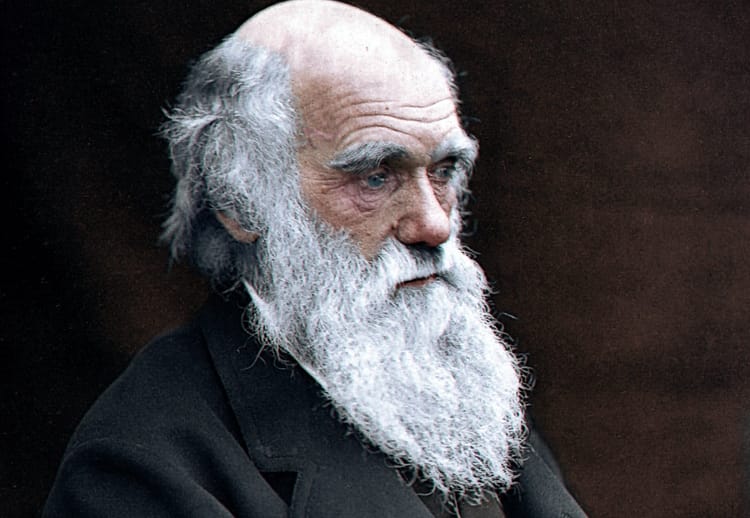
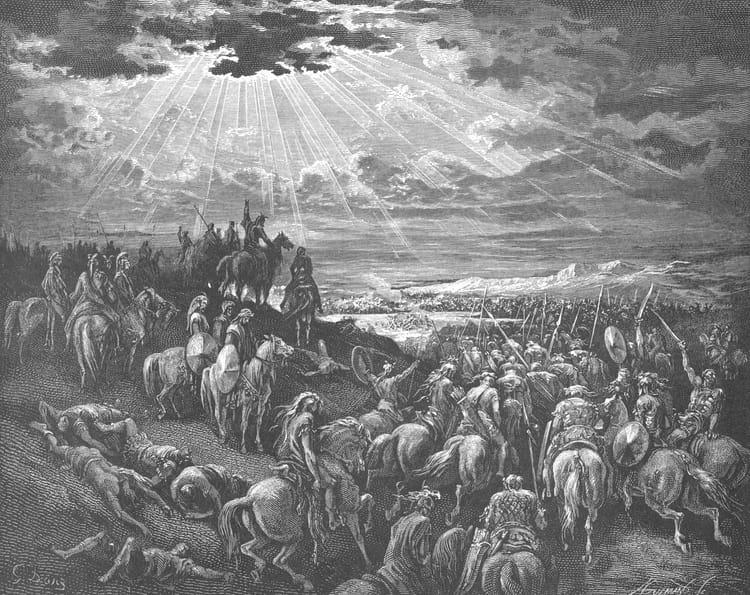


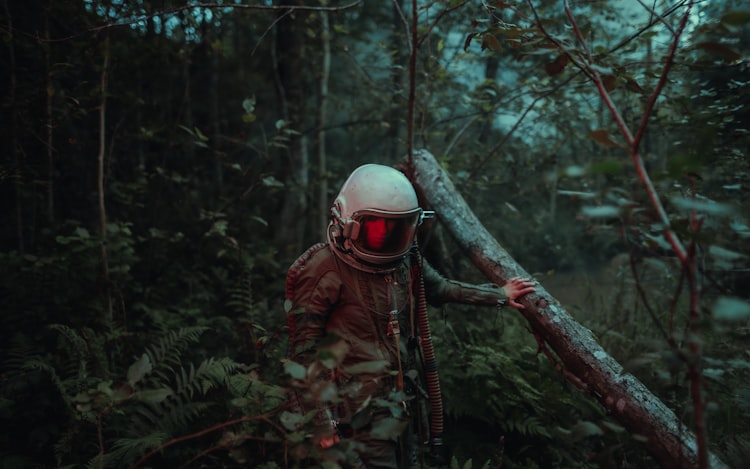
Member discussion